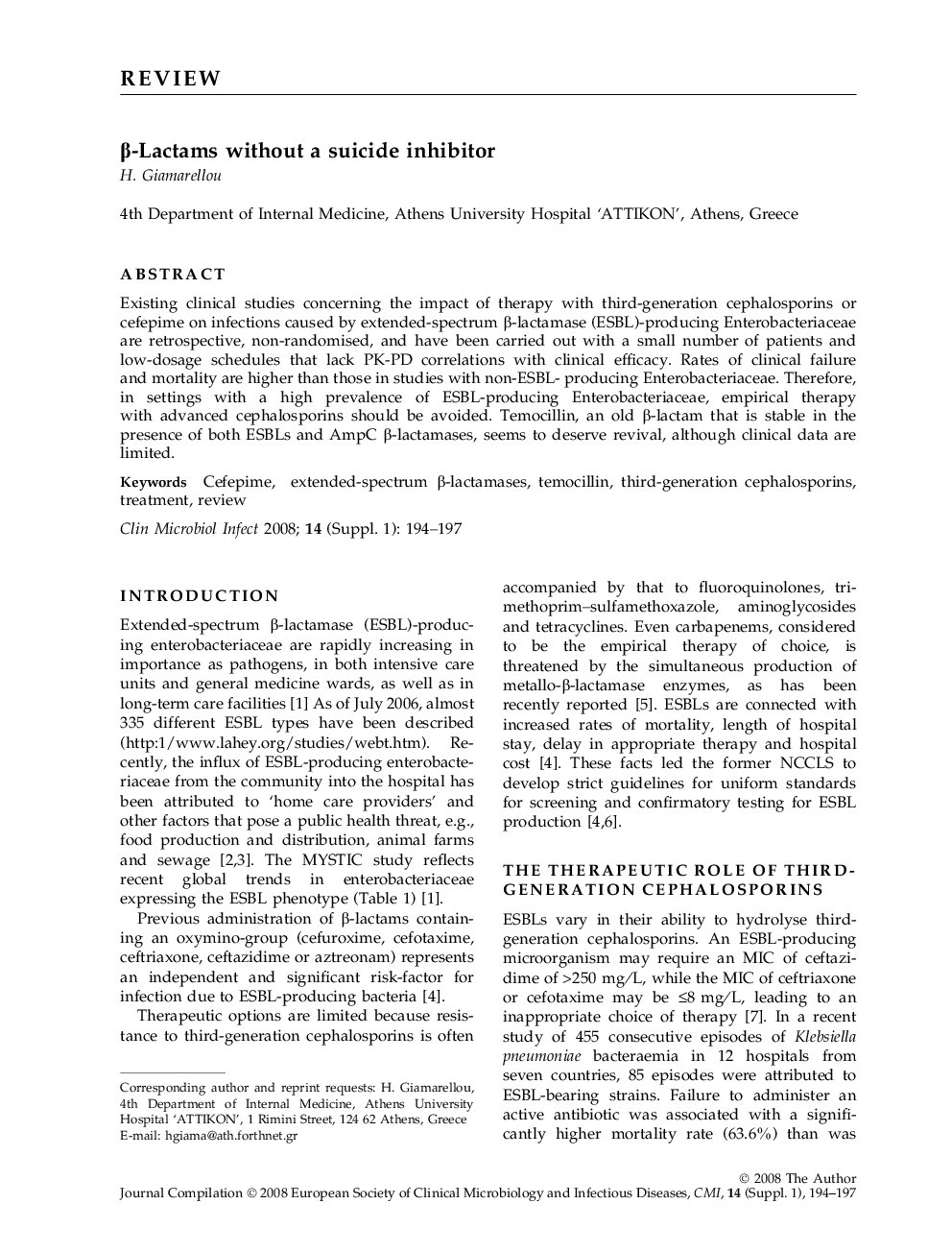| Article ID | Journal | Published Year | Pages | File Type |
|---|---|---|---|---|
| 3398754 | Clinical Microbiology and Infection | 2008 | 4 Pages |
ABSTRACTExisting clinical studies concerning the impact of therapy with third-generation cephalosporins or cefepime on infections caused by extended-spectrum β-lactamase (ESBL)-producing Enterobacteriaceae are retrospective, non-randomised, and have been carried out with a small number of patients and low-dosage schedules that lack PK-PD correlations with clinical efficacy. Rates of clinical failure and mortality are higher than those in studies with non-ESBL- producing Enterobacteriaceae. Therefore, in settings with a high prevalence of ESBL-producing Enterobacteriaceae, empirical therapy with advanced cephalosporins should be avoided. Temocillin, an old β-lactam that is stable in the presence of both ESBLs and AmpC β-lactamases, seems to deserve revival, although clinical data are limited.
